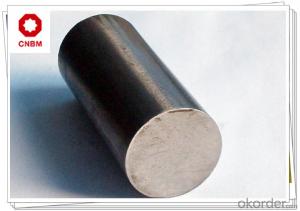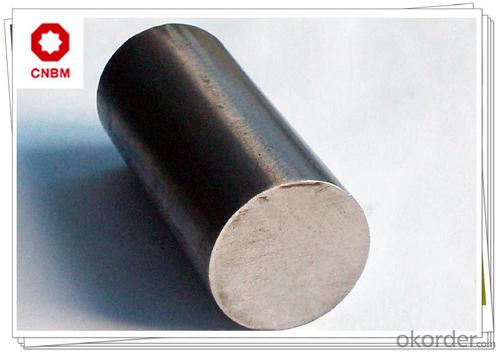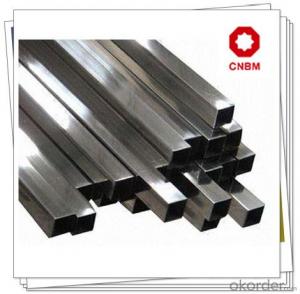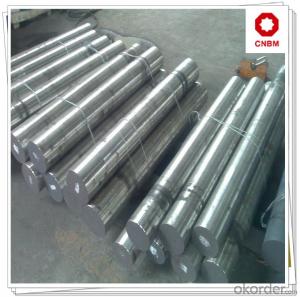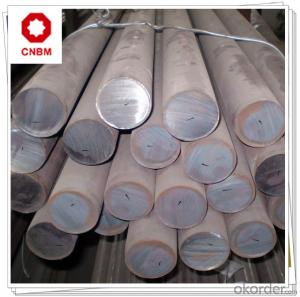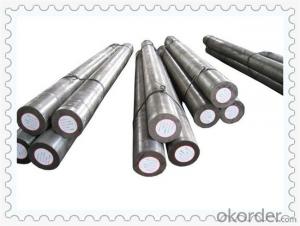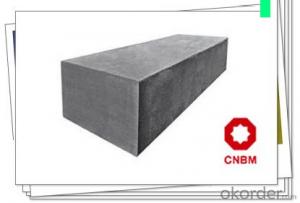Carbon Structural Steel Round Bars SS400CR
- Loading Port:
- Shanghai
- Payment Terms:
- TT OR LC
- Min Order Qty:
- 25 m.t.
- Supply Capability:
- 120000 m.t./month
OKorder Service Pledge
OKorder Financial Service
You Might Also Like
Carbon Structural Steel Round Bars SS400CR
PRODUCT SPECIFICATION
1, p ≤0.050%; S ≤0.050%; Cr ≥0.30%
2, Strength of Extension σb ≥400 Mpa
Yield Strength σs ≥245(25) Mpa
APPLICATION
1, Widely be used in construction and engineering structure.
2, Widely be used in making reinforcing steel bar or building plant room rack, high voltage transmission tower, bridge, vehicle, boiler, vessel, ship, etc.
3, Widely be used in manufacturing mechanical parts which do not require high performance.
4, SS400CR with grade C or D can be used as steel with special use.
PRODUCT MAIN POINTS
1, Heat Treatment: normalizing, annealing, tempering, quenching
2, Surface Treatment: black, bright, polished, galvanized
3, Product Process: hot rolled, cold drawn, forged
FAQ
1, Payment Terms:
30% T/T deposit & 70% T/T before delivery.
Irrevocable L/C at sight
2, Trade Terms:
FOB, CIF, CNF
3, Delivery Time:
Normally 30-40 days. According to quantity.
4, Manufacture or Trading Company:
CNBM is a state-owned fortune global 500 trading company. We have intergrated supply system.
There are about 20 overseas locations in different countries.
PRODUCT SHOW
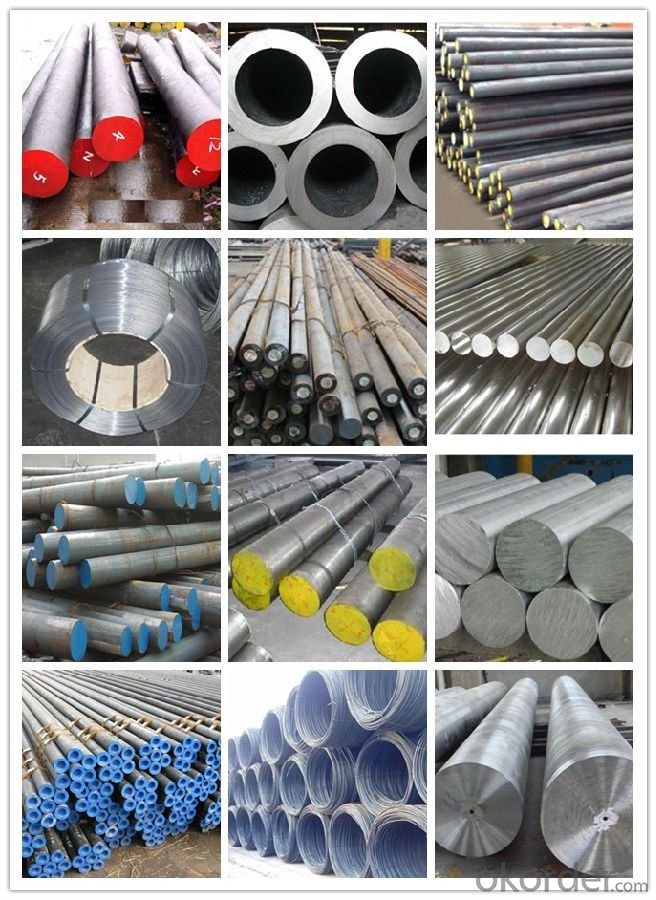
ABOUT US

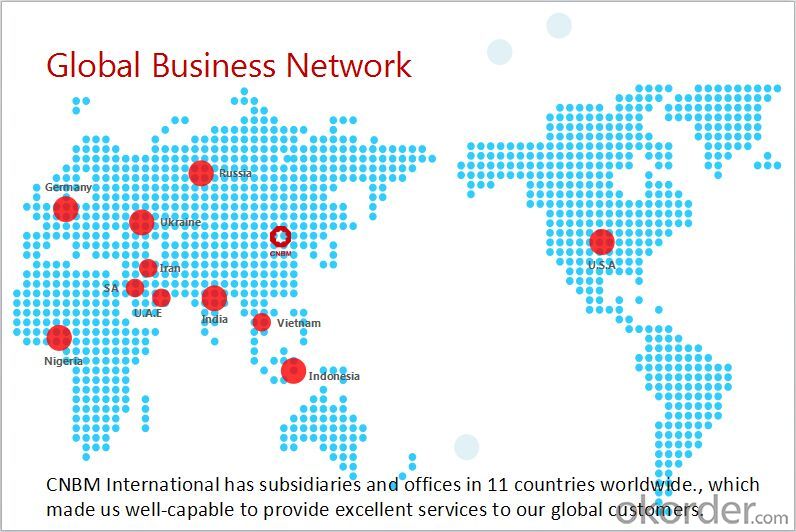
- Q: What is the minimum yield strength of steel round bars?
- The specific grade and type of steel being used can cause the minimum yield strength of steel round bars to vary. However, the majority of steel round bars generally possess a minimum yield strength of 36,000 psi (pounds per square inch) or 250 megapascals (MPa). This minimum yield strength ensures that the steel round bars are strong enough to resist applied loads and avoid deformation or failure. It is worth mentioning that certain applications may demand steel round bars with higher yield strengths to fulfill particular performance criteria.
- Q: Can steel round bars be heat treated?
- Yes, it is possible to heat treat steel round bars. Heat treatment involves controlled heating and cooling of the steel to alter its physical and mechanical properties. Various heat treatment processes can be used on steel round bars, including annealing, normalizing, quenching, and tempering. Annealing is a heat treatment method where the steel is heated to a specific temperature and held there for a certain period of time. It is then slowly cooled. This process is used to soften the steel, improve its machinability, and reduce internal stresses. Normalizing is similar to annealing, but the cooling is done in air. It is often employed to refine the grain structure of the steel and enhance its overall strength and toughness. Quenching is a rapid cooling process where the steel round bars are immersed in a quenching medium, such as oil or water, to cool them quickly. This process increases the hardness and strength of the steel. However, it also makes the steel more brittle. Therefore, it is often followed by tempering to reduce brittleness and improve toughness. Tempering involves reheating the hardened steel to a specific temperature and holding it there for a certain period of time. It is then slowly cooled. This process helps to reduce the hardness and brittleness caused by quenching, while still maintaining a desirable level of strength and toughness. In summary, heat treatment is a versatile process that can be applied to steel round bars to achieve a wide range of desired properties, such as hardness, strength, toughness, and machinability.
- Q: What is the difference between a centerless ground and a polished steel round bar?
- A centerless ground steel round bar and a polished steel round bar are both types of steel bars that have undergone different finishing processes, resulting in distinct qualities and characteristics. A centerless ground steel round bar is produced by grinding the surface of the steel bar using a specialized machine called a centerless grinder. This process removes any imperfections or irregularities on the surface, resulting in a smooth and uniform finish. The centerless grinding process also ensures that the diameter of the bar remains consistent throughout its length. This makes centerless ground steel round bars ideal for applications that require precise dimensions and a smooth surface, such as in machining operations or as a base material for further processing. On the other hand, a polished steel round bar is achieved through a polishing process, where the surface of the steel bar is buffed and polished using abrasive materials. This process helps to enhance the aesthetic appearance of the steel bar, giving it a shiny and reflective surface. Unlike centerless grinding, polishing does not involve removing material from the surface but rather smoothing and refining it. Polished steel round bars are often used in decorative applications, such as in architecture, interior design, or as components in high-end furniture. In summary, the main difference between a centerless ground steel round bar and a polished steel round bar lies in the finishing process. Centerless grinding focuses on achieving precise dimensions and a smooth surface, making it suitable for functional applications. On the other hand, polishing aims to enhance the visual appeal of the steel bar, making it more suitable for decorative purposes.
- Q: Can steel round bars be used for making camshafts?
- Camshafts can indeed be made using steel round bars. In fact, steel is a widely used material for camshaft production because of its exceptional strength, durability, and resistance to wear and fatigue. By machining and shaping steel round bars, they can be transformed into the desired profile, which makes them ideal for manufacturing camshafts. These camshafts are crucial components in internal combustion engines. The specific type of steel chosen will depend on the application and performance requirements. Typically, alloy steels or carbon steels with superior mechanical properties are used. In summary, steel round bars provide a reliable and cost-effective option for producing camshafts that can endure the demanding conditions of engine operation.
- Q: Can steel round bars be coated or painted?
- Steel round bars have the capability to undergo coating or painting. The purpose of coating or painting steel round bars is manifold; it prevents corrosion, enhances aesthetics, and provides additional protection against environmental factors. There are several methods available for applying coatings and paints to steel round bars, including powder coating, electroplating, or wet paint application. These processes involve first preparing the surface of the steel round bar by removing any existing rust or contaminants, and then applying the chosen coating or paint. The selection of the appropriate coating or paint depends on the specific requirements of the steel round bars, such as their intended use, environmental conditions, and desired appearance. By coating or painting steel round bars, their lifespan can be significantly extended, their visual appeal can be improved, and their durability can be ensured in a wide range of applications.
- Q: How do steel round bars compare to fiberglass round bars?
- Steel round bars and fiberglass round bars have different properties and applications, making them suitable for various purposes. Steel round bars are known for their high strength and durability. They are commonly used in construction, manufacturing, and engineering industries, where strength and load-bearing capacity are crucial. Steel round bars can withstand heavy loads, making them ideal for structural applications such as beams, columns, and supports. Additionally, steel round bars have excellent resistance to impact, wear, and corrosion, making them suitable for outdoor and high-stress environments. On the other hand, fiberglass round bars offer unique advantages. Fiberglass is a lightweight and non-conductive material, making it suitable for applications where electrical conductivity or weight is a concern. Fiberglass round bars are commonly used in the electrical and telecommunications industries, where they provide insulation and safety. They are also resistant to corrosion, making them suitable for outdoor and marine applications. In terms of cost, steel round bars are generally more affordable compared to fiberglass round bars. Steel is a widely available material, and its production costs are relatively low. Fiberglass, on the other hand, requires specialized manufacturing processes and materials, which can increase its cost. Ultimately, the choice between steel and fiberglass round bars depends on the specific requirements of the application. If strength, durability, and load-bearing capacity are critical, steel round bars are an excellent choice. However, if weight, electrical insulation, or corrosion resistance are important considerations, fiberglass round bars may be more suitable.
- Q: Can the same grade steel instead of round bar be ok?
- Physical and mechanical properties are different. Because of the different chemical composition and strength of reinforcing steel, they are different in physical and mechanical properties. The cold bending property of steel is good, can make the hook 180, screw steel can only make straight hook 90 degrees; steel weldability is good, with ordinary carbon steel electrode can be used to low alloy electrode; anti fatigue performance and toughness in steel bar is good.
- Q: What are the advantages of using non-alloy steel round bars?
- Non-alloy steel round bars offer numerous benefits. Firstly, they possess exceptional strength and durability, surpassing their alloy steel counterparts. As a result, they are well-suited for applications that require robustness. Industries such as construction, automotive, and manufacturing find them particularly advantageous. In addition, non-alloy steel round bars exhibit outstanding weldability and machinability. They can be effortlessly welded and shaped into various forms, allowing for flexibility in design and fabrication. This, in turn, streamlines the manufacturing process and saves valuable time and effort. Furthermore, non-alloy steel round bars possess commendable corrosion resistance. They are less susceptible to rust and deterioration, making them perfect for environments where exposure to moisture or corrosive substances is a concern. The longevity and reliability of these bars are thus ensured, resulting in reduced maintenance and replacement costs over time. Moreover, non-alloy steel round bars prove to be cost-effective when compared to their alloy steel counterparts. They are more affordable and readily available, making them a prudent choice for a wide range of applications. This affordability renders non-alloy steel round bars particularly popular for small-scale projects and businesses operating on a limited budget. In conclusion, the advantages of utilizing non-alloy steel round bars encompass high strength, exceptional weldability and machinability, commendable corrosion resistance, and cost-effectiveness. These characteristics make them a versatile and dependable option for various industries and applications.
- Q: Can steel round bars be used in the medical industry?
- Steel round bars are indeed applicable in the medical sector. Specifically, stainless steel round bars are frequently utilized in medical applications due to their ability to resist corrosion, their strength, and their durability. These bars serve multiple purposes in the production of diverse medical devices and equipment, such as surgical instruments, orthopedic implants, dental tools, and prosthetics. The superior quality of stainless steel guarantees that these products can endure the challenging conditions found in medical environments while ensuring optimal performance and safety for patients. Furthermore, stainless steel round bars can be conveniently sterilized, making them suitable for usage in sterile medical settings.
- Q: What are the common finishes for steel round bars?
- Steel round bars can be finished in several ways, each offering unique properties and aesthetic appeal. Some of the most common finishes are as follows: 1. Achieving a rough and scaled surface, hot rolling involves rolling the steel at a high temperature. This finish is commonly preferred for applications where a rough texture is desired, such as structural components or machinery. 2. Cold rolling, on the other hand, results in a smoother and more polished surface. It is achieved by rolling the steel at room temperature and is often used in industries like automotive or aerospace, where a clean and precise appearance is required. 3. For a smooth and polished surface, the steel round bar can be turned and polished. This finish involves machining the bar and is commonly used for decorative purposes or in applications where precision is crucial, such as shafts or fasteners. 4. By grinding the steel round bar, any surface imperfections or irregularities can be removed, resulting in a smooth and uniform finish. This finish, known as grinding, is suitable for applications where tight tolerances or a consistent finish are essential. 5. Alternatively, steel round bars can be coated or plated with different materials to enhance their corrosion resistance or aesthetic appeal. Popular options include galvanizing, which involves applying a layer of zinc to protect against rust, or chrome plating, which provides a shiny and attractive finish. Ultimately, the choice of finish for a steel round bar depends on the specific requirements of the application, such as the desired appearance, corrosion resistance, or mechanical properties needed.
Send your message to us
Carbon Structural Steel Round Bars SS400CR
- Loading Port:
- Shanghai
- Payment Terms:
- TT OR LC
- Min Order Qty:
- 25 m.t.
- Supply Capability:
- 120000 m.t./month
OKorder Service Pledge
OKorder Financial Service
Similar products
Hot products
Hot Searches
Related keywords
